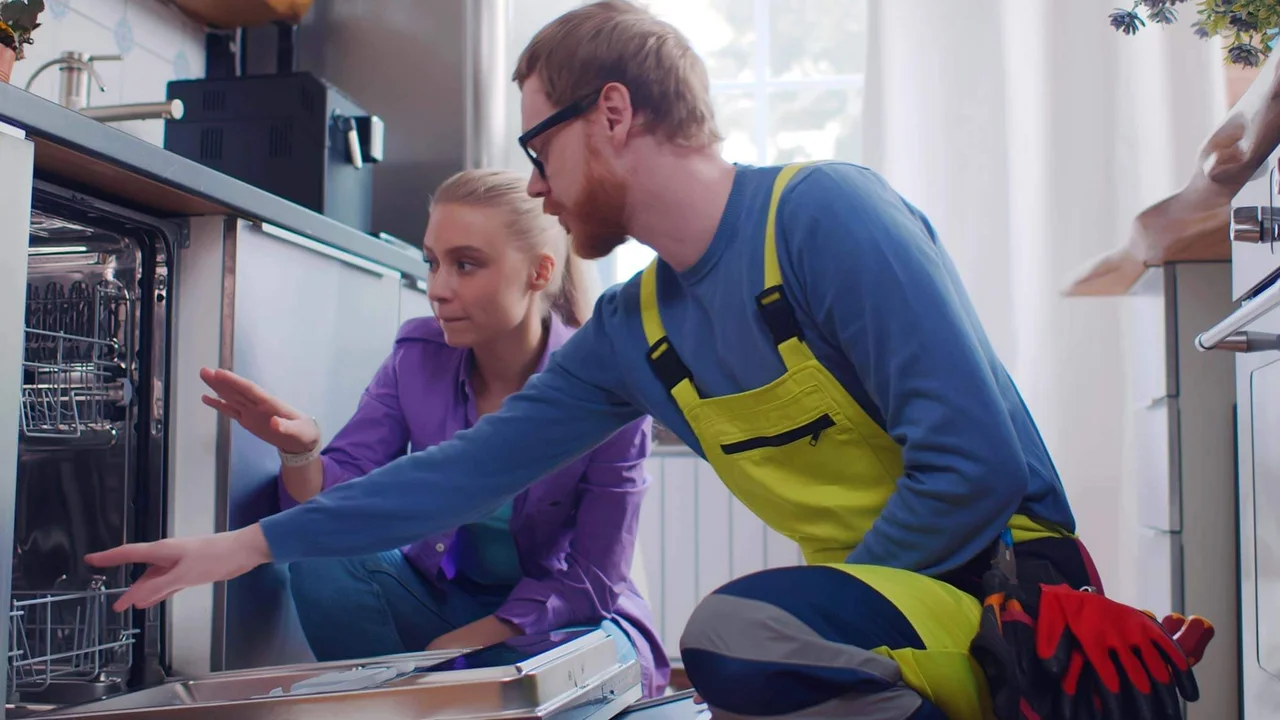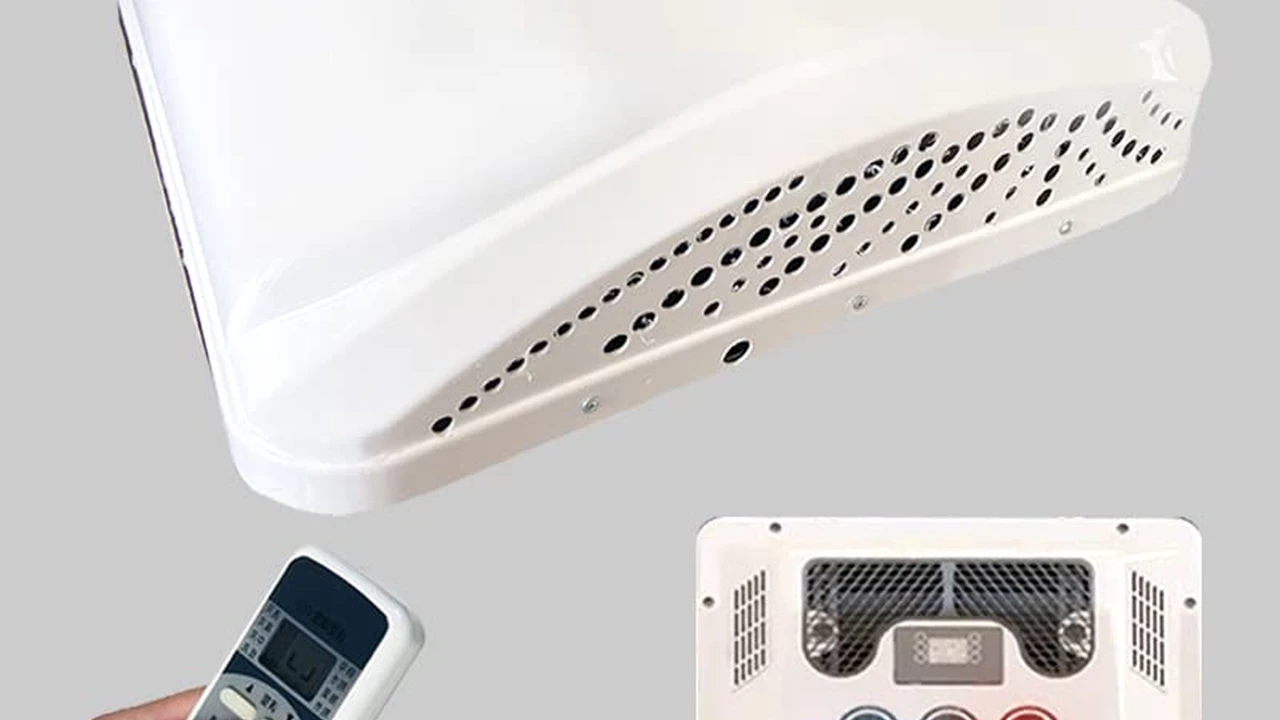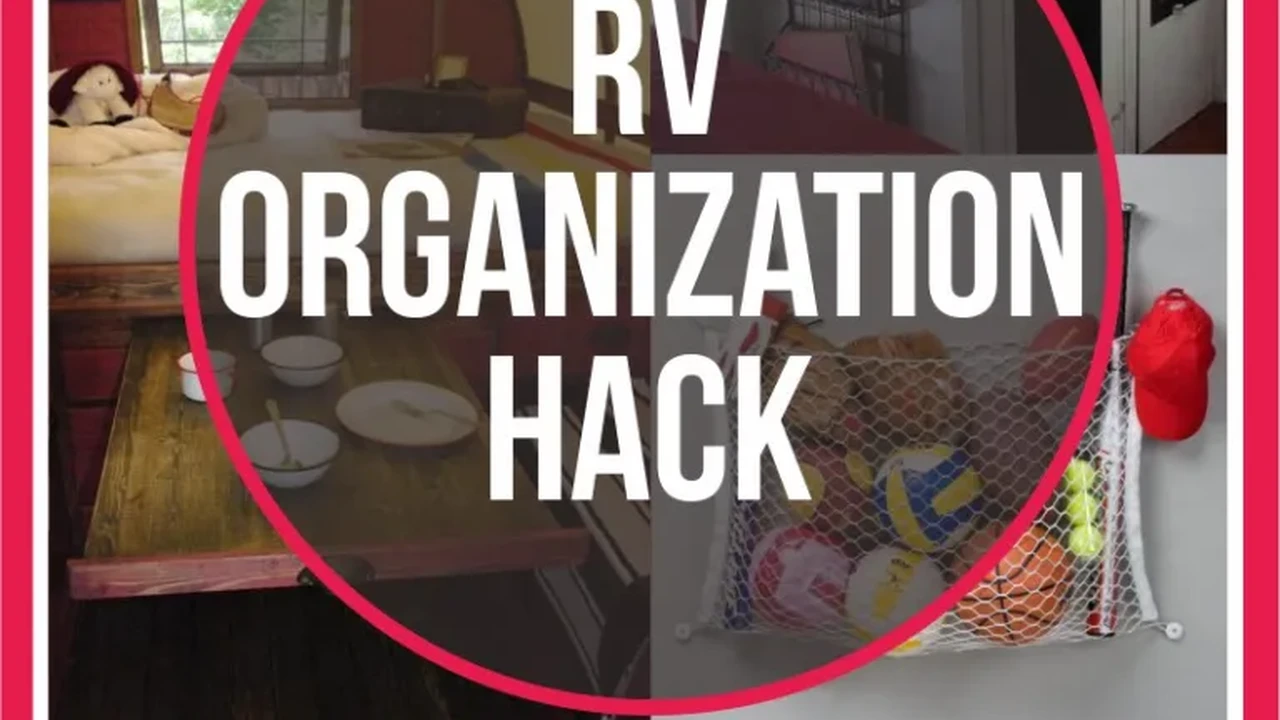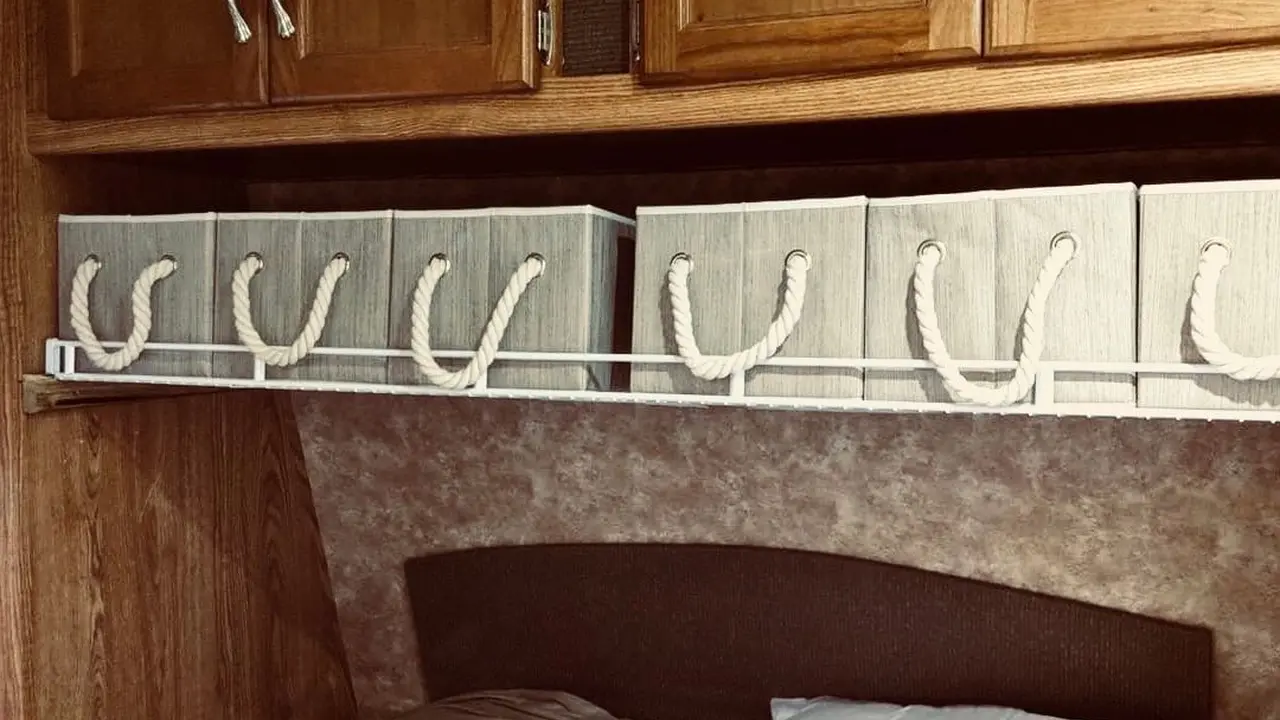RV Appliance Maintenance: Keeping Everything Running

RV Appliance Maintenance Introduction
Welcome fellow RV adventurers! Let's face it, RVing is all about freedom, exploration, and enjoying the great outdoors. But what happens when your fridge decides to take a vacation of its own, or your water heater throws a tantrum? Suddenly, that dream trip can turn into a frustrating ordeal. That's why RV appliance maintenance is absolutely crucial. Think of it as preventative medicine for your home on wheels. Regular maintenance not only extends the lifespan of your appliances but also saves you money and headaches down the road.
Why RV Appliance Maintenance Matters
Ignoring RV appliance maintenance is like neglecting your car’s oil changes. Sure, it might run for a while, but eventually, something’s going to break down. And when it does, it’s usually at the most inconvenient time and place. Regular maintenance offers several key benefits:
*Extends Appliance Lifespan: Proper care and cleaning can significantly prolong the life of your RV appliances. This means fewer replacements and more money in your pocket.
*Prevents Costly Repairs: Small issues, if left unattended, can quickly escalate into major problems requiring expensive repairs. Catching problems early can save you a bundle.
*Ensures Safe Operation: Faulty appliances can pose safety hazards, such as gas leaks, electrical fires, or carbon monoxide poisoning. Regular maintenance helps ensure that your appliances are operating safely.
*Maintains Efficiency: Clean and well-maintained appliances operate more efficiently, which can save you energy and money on fuel or electricity.
*Peace of Mind: Knowing that your appliances are in good working order allows you to relax and enjoy your RV adventures without worrying about breakdowns.
Essential RV Appliance Maintenance Checklist
This checklist covers the essential maintenance tasks for the most common RV appliances:
RV Refrigerator Maintenance Tips and Tricks
Your RV refrigerator is a crucial appliance, especially during those hot summer months. Here’s how to keep it running smoothly:
*Cleaning: Regularly clean the interior of your refrigerator with a mild soap and water solution. Wipe up spills immediately to prevent odors and stains. Use baking soda to absorb any lingering smells.
*Defrosting: If you have a manual defrost refrigerator, defrost it regularly to prevent ice buildup. Ice buildup reduces efficiency and can damage the cooling system. Automatic defrost models still benefit from occasional cleaning.
*Ventilation: Ensure that the refrigerator vents are clear of obstructions. Proper ventilation is essential for efficient cooling. Check the vents for debris, such as leaves or insects.
*Leveling: RV refrigerators, especially absorption refrigerators, need to be relatively level to operate properly. Use a leveling app on your phone or a bubble level to ensure that your RV is level.
*Propane System Check: If your refrigerator runs on propane, have the propane system inspected regularly for leaks. Propane leaks can be dangerous.
Product Recommendation: Camco RV Refrigerator Vent Cover – This cover helps protect your refrigerator vents from insects and debris, improving ventilation and extending the life of your refrigerator. Price: $15 - $25
Use Case: Install the Camco RV Refrigerator Vent Cover before each trip to prevent insects from building nests in the vents. This simple step can save you from costly repairs down the road.
Product Comparison: Camco RV Refrigerator Vent Cover vs. Generic Vent Covers – Camco offers a more durable and weather-resistant vent cover compared to generic options. While generic options may be cheaper, they often lack the same level of protection and longevity.
RV Air Conditioner Maintenance Guide
Staying cool in your RV is essential for comfort, especially in hot climates. Here’s how to maintain your RV air conditioner:
*Filter Cleaning: Clean or replace the air conditioner filter regularly. A dirty filter restricts airflow and reduces cooling efficiency. Check the filter at least once a month, and more frequently if you’re camping in dusty environments.
*Coil Cleaning: Clean the evaporator and condenser coils regularly. Dirty coils reduce cooling efficiency and can cause the air conditioner to overheat. Use a coil cleaner specifically designed for RV air conditioners.
*Seal Inspection: Inspect the seals around the air conditioner unit for leaks. Leaks can allow warm air to enter the RV, reducing cooling efficiency. Replace any damaged seals.
*Fan Blade Inspection: Check the fan blades for damage or debris. Damaged or dirty fan blades can reduce airflow and cause the air conditioner to vibrate.
*Voltage Check: Ensure that you’re providing the air conditioner with the correct voltage. Low voltage can damage the compressor. Use a surge protector to protect your air conditioner from voltage fluctuations.
Product Recommendation: Camco RV Air Conditioner Filter – This filter is designed to capture dust, pollen, and other airborne particles, improving air quality and extending the life of your air conditioner. Price: $10 - $20
Use Case: Replace the Camco RV Air Conditioner Filter every 3-6 months, depending on usage, to maintain optimal air quality and cooling efficiency.
Product Comparison: Camco RV Air Conditioner Filter vs. Generic Filters – Camco filters are specifically designed for RV air conditioners and offer better filtration compared to generic filters. They are also more durable and long-lasting.
RV Water Heater Maintenance Best Practices
A reliable water heater is essential for showers, washing dishes, and other everyday tasks. Here’s how to keep your RV water heater in good working order:
*Flushing: Flush the water heater tank regularly to remove sediment buildup. Sediment buildup reduces heating efficiency and can damage the tank. Use a water heater tank flushing wand.
*Anode Rod Inspection: Inspect the anode rod regularly and replace it when it’s corroded. The anode rod protects the tank from corrosion. Replace the anode rod every 1-2 years, depending on water quality.
*Pressure Relief Valve: Test the pressure relief valve regularly to ensure that it’s working properly. A faulty pressure relief valve can cause the tank to explode.
*Propane System Check: If your water heater runs on propane, have the propane system inspected regularly for leaks. Propane leaks can be dangerous.
*Winterization: Winterize the water heater properly to prevent freezing and damage during cold weather. Drain the tank and bypass the water heater.
Product Recommendation: Camco RV Water Heater Tank Rinser – This rinser helps remove sediment and debris from your water heater tank, improving heating efficiency and extending the life of your water heater. Price: $10 - $15
Use Case: Use the Camco RV Water Heater Tank Rinser every 6 months to remove sediment buildup and prevent corrosion.
Product Comparison: Camco RV Water Heater Tank Rinser vs. Homemade Rinsers – The Camco rinser is designed specifically for RV water heaters and provides a more effective and convenient way to flush the tank compared to homemade rinsers.
RV Furnace Maintenance Strategies
Staying warm in your RV during cold weather is essential for comfort. Here’s how to maintain your RV furnace:
*Cleaning: Clean the furnace burner and combustion chamber regularly. Dust and debris can reduce heating efficiency and cause the furnace to malfunction. Use a vacuum cleaner with a brush attachment.
*Vent Inspection: Inspect the furnace vents for obstructions. Obstructions can restrict airflow and cause the furnace to overheat. Check the vents for debris, such as leaves or insects.
*Thermocouple Inspection: Inspect the thermocouple regularly and replace it if it’s damaged. The thermocouple is a safety device that shuts off the gas supply if the pilot light goes out.
*Propane System Check: Have the propane system inspected regularly for leaks. Propane leaks can be dangerous.
*Carbon Monoxide Detector: Ensure that your carbon monoxide detector is working properly. Carbon monoxide is a deadly gas that can be produced by a faulty furnace.
Product Recommendation: Camco RV Furnace Vent Screen – This screen helps prevent insects and debris from entering your furnace vents, improving airflow and extending the life of your furnace. Price: $10 - $20
Use Case: Install the Camco RV Furnace Vent Screen before each trip to prevent insects from building nests in the vents.
Product Comparison: Camco RV Furnace Vent Screen vs. Generic Vent Screens – Camco offers a more durable and weather-resistant vent screen compared to generic options. It also provides better protection against insects and debris.
RV Water Pump Maintenance Guidelines
Your RV water pump provides pressurized water for showers, sinks, and toilets. Here’s how to maintain your RV water pump:
*Filter Cleaning: Clean the water pump filter regularly. A dirty filter restricts water flow and can damage the pump. Check the filter at least once a month.
*Hose Inspection: Inspect the hoses for leaks. Leaks can reduce water pressure and damage the pump. Replace any damaged hoses.
*Pressure Adjustment: Adjust the water pump pressure to the correct level. Too much pressure can damage the plumbing, while too little pressure can result in weak water flow.
*Winterization: Winterize the water pump properly to prevent freezing and damage during cold weather. Drain the pump and bypass it.
Product Recommendation: SHURflo RV Water Pump Strainer – This strainer protects your water pump from debris and contaminants, extending its life and improving water flow. Price: $5 - $10
Use Case: Install the SHURflo RV Water Pump Strainer to prevent debris from entering the water pump and causing damage.
Product Comparison: SHURflo RV Water Pump Strainer vs. Generic Strainers – SHURflo is a reputable brand known for its high-quality water pumps and accessories. Their strainers offer better filtration and durability compared to generic options.
RV Generator Maintenance Secrets
An RV generator provides electricity when you’re camping off-grid. Here’s how to maintain your RV generator:
*Oil Changes: Change the oil regularly according to the manufacturer’s recommendations. Old oil can damage the engine. Use the correct type of oil for your generator.
*Filter Cleaning: Clean or replace the air filter regularly. A dirty air filter restricts airflow and reduces engine efficiency.
*Spark Plug Replacement: Replace the spark plugs regularly. Old spark plugs can cause the engine to misfire.
*Fuel Stabilizer: Use a fuel stabilizer in the gasoline to prevent it from breaking down. Gasoline can break down over time, especially when stored in a generator that’s not used frequently.
*Exercise Regularly: Run the generator regularly, even when you’re not using it. This helps keep the engine lubricated and prevents the carburetor from clogging.
Product Recommendation: Briggs & Stratton Fuel Stabilizer – This stabilizer helps prevent fuel breakdown and keeps your generator running smoothly, even after long periods of storage. Price: $5 - $10
Use Case: Add Briggs & Stratton Fuel Stabilizer to your generator's fuel tank before storing it for the winter or any extended period of inactivity.
Product Comparison: Briggs & Stratton Fuel Stabilizer vs. STA-BIL Fuel Stabilizer – Both are reputable brands, but Briggs & Stratton is often preferred for its compatibility with a wider range of generators and its slightly lower price point.
Specific Product Recommendations and Detailed Information
Let's dive deeper into some specific product recommendations, providing detailed information including pricing and use cases:
Detailed Look at the Camco RV Refrigerator Vent Cover
*Product: Camco RV Refrigerator Vent Cover
*Description: This vent cover is designed to protect your RV refrigerator vents from insects, debris, and other elements that can clog the vents and reduce refrigerator efficiency. It's made from durable plastic and is easy to install.
*Features:
*Durable plastic construction
*Easy to install and remove
*Protects vents from insects and debris
*Improves refrigerator ventilation
*Pricing: $15 - $25 (depending on the retailer)
*Use Cases:
*Preventing insects from building nests in the vents
*Protecting the vents from leaves and other debris
*Improving refrigerator cooling efficiency
*Extending the life of your refrigerator
*Installation: The Camco RV Refrigerator Vent Cover typically attaches with screws or clips. Follow the manufacturer's instructions for proper installation.
In-Depth Analysis of the Camco RV Air Conditioner Filter
*Product: Camco RV Air Conditioner Filter
*Description: This filter is designed to capture dust, pollen, and other airborne particles, improving air quality and extending the life of your RV air conditioner. It's made from a high-quality filter material and is easy to replace.
*Features:
*High-quality filter material
*Easy to replace
*Captures dust, pollen, and other airborne particles
*Improves air quality
*Extends the life of your air conditioner
*Pricing: $10 - $20 (depending on the retailer and size)
*Use Cases:
*Improving air quality inside your RV
*Preventing dust and debris from clogging the air conditioner coils
*Extending the life of your air conditioner
*Reducing energy consumption
*Replacement: Replace the Camco RV Air Conditioner Filter every 3-6 months, depending on usage. Check the filter regularly for dirt and debris.
A Closer Look at the Camco RV Water Heater Tank Rinser
*Product: Camco RV Water Heater Tank Rinser
*Description: This rinser is designed to remove sediment and debris from your water heater tank, improving heating efficiency and extending the life of your water heater. It attaches to a garden hose and features a curved wand that allows you to reach all areas of the tank.
*Features:
*Curved wand for reaching all areas of the tank
*Attaches to a garden hose
*Removes sediment and debris
*Improves heating efficiency
*Extends the life of your water heater
*Pricing: $10 - $15 (depending on the retailer)
*Use Cases:
*Removing sediment buildup from the water heater tank
*Preventing corrosion and damage to the tank
*Improving water heating efficiency
*Extending the life of your water heater
*Usage: Use the Camco RV Water Heater Tank Rinser every 6 months to remove sediment buildup. Drain the tank completely before rinsing.
Detailed Breakdown of the Camco RV Furnace Vent Screen
*Product: Camco RV Furnace Vent Screen
*Description: This screen is designed to prevent insects and debris from entering your furnace vents, improving airflow and extending the life of your furnace. It's made from durable mesh and is easy to install.
*Features:
*Durable mesh construction
*Easy to install and remove
*Protects vents from insects and debris
*Improves furnace airflow
*Extends the life of your furnace
*Pricing: $10 - $20 (depending on the retailer and size)
*Use Cases:
*Preventing insects from building nests in the vents
*Protecting the vents from leaves and other debris
*Improving furnace heating efficiency
*Extending the life of your furnace
*Installation: The Camco RV Furnace Vent Screen typically attaches with clips or screws. Follow the manufacturer's instructions for proper installation.
In-Depth Review of the SHURflo RV Water Pump Strainer
*Product: SHURflo RV Water Pump Strainer
*Description: This strainer protects your water pump from debris and contaminants, extending its life and improving water flow. It's made from durable plastic and features a clear housing that allows you to easily see when it needs to be cleaned.
*Features:
*Durable plastic construction
*Clear housing for easy inspection
*Protects the water pump from debris
*Improves water flow
*Extends the life of your water pump
*Pricing: $5 - $10 (depending on the retailer)
*Use Cases:
*Preventing debris from entering the water pump
*Protecting the pump from damage
*Improving water flow
*Extending the life of your water pump
*Cleaning: Clean the SHURflo RV Water Pump Strainer regularly. Remove the strainer from the pump and rinse it with clean water.
A Comprehensive View of the Briggs & Stratton Fuel Stabilizer
*Product: Briggs & Stratton Fuel Stabilizer
*Description: This stabilizer helps prevent fuel breakdown and keeps your generator running smoothly, even after long periods of storage. It's designed to protect your engine from the harmful effects of ethanol-blended fuels.
*Features:
*Prevents fuel breakdown
*Protects against ethanol-blended fuels
*Keeps the carburetor clean
*Extends fuel life
*Easy to use
*Pricing: $5 - $10 (depending on the retailer)
*Use Cases:
*Storing your generator for the winter
*Protecting your engine from ethanol damage
*Keeping the carburetor clean
*Extending fuel life
*Usage: Add Briggs & Stratton Fuel Stabilizer to your generator's fuel tank before storing it for the winter or any extended period of inactivity. Follow the manufacturer's instructions for proper dosage.
Troubleshooting Common RV Appliance Problems
Even with regular maintenance, RV appliances can sometimes experience problems. Here are some common issues and how to troubleshoot them:
RV Refrigerator Not Cooling Properly Troubleshooting
*Problem: The refrigerator is not cooling properly.
*Possible Causes:
*Dirty coils
*Obstructed vents
*Incorrect leveling
*Faulty thermostat
*Propane system issues (if applicable)
*Troubleshooting Steps:
*Clean the coils.
*Clear any obstructions from the vents.
*Ensure that the RV is level.
*Check the thermostat settings.
*Have the propane system inspected (if applicable).
RV Air Conditioner Not Blowing Cold Air Troubleshooting
*Problem: The air conditioner is not blowing cold air.
*Possible Causes:
*Dirty filter
*Dirty coils
*Low refrigerant
*Faulty compressor
*Power supply issues
*Troubleshooting Steps:
*Clean or replace the filter.
*Clean the coils.
*Have the refrigerant level checked by a qualified technician.
*Check the power supply to the air conditioner.
RV Water Heater Not Heating Water Troubleshooting
*Problem: The water heater is not heating water.
*Possible Causes:
*Faulty heating element (electric water heaters)
*Faulty burner (propane water heaters)
*Faulty thermostat
*Low propane supply (propane water heaters)
*Tripped circuit breaker (electric water heaters)
*Troubleshooting Steps:
*Check the heating element (electric water heaters).
*Check the burner (propane water heaters).
*Check the thermostat settings.
*Ensure that there is sufficient propane (propane water heaters).
*Check the circuit breaker (electric water heaters).
RV Furnace Not Igniting Troubleshooting
*Problem: The furnace is not igniting.
*Possible Causes:
*Low propane supply
*Faulty igniter
*Dirty burner
*Faulty thermocouple
*Blocked vents
*Troubleshooting Steps:
*Ensure that there is sufficient propane.
*Check the igniter.
*Clean the burner.
*Check the thermocouple.
*Check for blocked vents.
RV Water Pump Not Working Troubleshooting
*Problem: The water pump is not working.
*Possible Causes:
*Blown fuse
*Faulty switch
*Low voltage
*Clogged filter
*Air in the lines
*Troubleshooting Steps:
*Check the fuse.
*Check the switch.
*Check the voltage.
*Clean the filter.
*Bleed the air from the lines.
RV Generator Not Starting Troubleshooting
*Problem: The generator is not starting.
*Possible Causes:
*Low fuel level
*Old fuel
*Faulty spark plug
*Dirty air filter
*Dead battery
*Troubleshooting Steps:
*Check the fuel level.
*Drain the old fuel and replace it with fresh fuel.
*Check the spark plug.
*Clean or replace the air filter.
*Check the battery.
Advanced RV Appliance Maintenance Procedures
For the more adventurous RVers, here are some advanced maintenance procedures that can help keep your appliances in top condition:
Deep Cleaning RV Refrigerator Coils
While regular cleaning of the refrigerator coils is important, a deep cleaning can remove stubborn dirt and debris. This involves using a coil cleaner specifically designed for RV refrigerators and a soft brush to gently scrub the coils. Always disconnect the power supply before performing this task.
Calibrating RV Air Conditioner Thermostats
Over time, RV air conditioner thermostats can become inaccurate. Calibrating the thermostat ensures that the air conditioner is cooling to the correct temperature. This usually involves adjusting a small screw on the thermostat housing. Refer to the manufacturer's instructions for specific calibration procedures.
Replacing RV Water Heater Anode Rods
Replacing the anode rod in your RV water heater is a critical maintenance task. The anode rod is designed to corrode instead of the water heater tank, protecting the tank from rust and leaks. Inspect the anode rod regularly and replace it when it's significantly corroded. Use a specialized anode rod wrench for easy removal and installation.
Servicing RV Furnace Burners
Servicing the RV furnace burner involves removing and cleaning the burner assembly. This removes any accumulated dust, debris, and rust that can affect the burner's performance. Use a wire brush and compressed air to clean the burner thoroughly. Always disconnect the propane supply before performing this task.
Rebuilding RV Water Pumps
If your RV water pump is experiencing frequent problems, rebuilding it may be a more cost-effective solution than replacing it. Rebuilding involves replacing worn parts, such as seals, diaphragms, and valves. Rebuild kits are available for most RV water pump models. Follow the manufacturer's instructions for proper rebuilding procedures.
Overhauling RV Generators
Overhauling an RV generator involves disassembling the engine and replacing worn parts, such as pistons, rings, and bearings. This is a complex task that should only be performed by experienced mechanics. Overhauling can significantly extend the life of your generator and improve its performance.
RV Appliance Maintenance Scheduling and Record Keeping
To ensure that you stay on top of your RV appliance maintenance, it's important to create a schedule and keep detailed records. This will help you track when maintenance tasks were performed and when they are due again.
Creating an RV Appliance Maintenance Schedule
Start by creating a list of all the RV appliances that require regular maintenance. For each appliance, determine the recommended maintenance intervals based on the manufacturer's recommendations. Create a calendar or spreadsheet to track when each task is due. Set reminders to ensure that you don't miss any important maintenance tasks.
Keeping RV Appliance Maintenance Records
Keep detailed records of all the maintenance tasks that you perform on your RV appliances. Include the date of the service, the tasks performed, the parts replaced, and any other relevant information. This will help you track the maintenance history of your appliances and identify any potential problems early on. You can use a notebook, spreadsheet, or RV maintenance app to keep track of your records.
The Importance of Professional RV Appliance Maintenance
While many RV appliance maintenance tasks can be performed by RV owners, some tasks require specialized knowledge and equipment. It's important to know when to seek professional help from a qualified RV technician.
When to Call a Professional RV Technician
*Complex Repairs: If you're not comfortable performing a complex repair, it's best to leave it to a professional.
*Propane System Issues: Propane system repairs should always be performed by a qualified technician due to the safety risks involved.
*Refrigerant Leaks: Refrigerant leaks should be repaired by a qualified technician to prevent environmental damage.
*Electrical Problems: Complex electrical problems should be diagnosed and repaired by a qualified technician.
*Warranty Work: If your appliance is still under warranty, it's important to have the repairs performed by an authorized service center.
Finding Qualified RV Technicians
Finding a qualified RV technician can be challenging. Here are some tips for finding a reputable technician:
*Ask for Recommendations: Ask other RV owners for recommendations.
*Check Online Reviews: Check online reviews to see what other customers have to say about the technician.
*Verify Certifications: Verify that the technician is certified by a reputable organization, such as the RV Technical Institute.
*Get a Written Estimate: Get a written estimate before authorizing any repairs.
*Ask About Warranty: Ask about the warranty on the repairs.
Essential RV Appliance Maintenance Tools and Supplies
Having the right tools and supplies on hand can make RV appliance maintenance much easier. Here are some essential tools and supplies to keep in your RV:
*Basic Hand Tools: Screwdrivers, wrenches, pliers, sockets, etc.
*Multimeter: For testing electrical circuits.
*Propane Leak Detector: For detecting propane leaks.
*Water Heater Tank Rinser: For flushing the water heater tank.
*RV Air Conditioner Coil Cleaner: For cleaning the air conditioner coils.
*RV Refrigerator Vent Cover: For protecting the refrigerator vents.
*RV Furnace Vent Screen: For protecting the furnace vents.
*SHURflo RV Water Pump Strainer: For protecting the water pump.
*Briggs & Stratton Fuel Stabilizer: For stabilizing fuel in the generator.
*Spare Parts: Fuses, light bulbs, etc.
RV Appliance Winterization Procedures
Winterizing your RV appliances is essential to prevent damage from freezing temperatures. Here are some essential winterization procedures:
*Drain the Water System: Drain all the water from the water lines, water heater, and holding tanks.
*Bypass the Water Heater: Bypass the water heater to prevent antifreeze from entering the tank.
*Add Antifreeze: Add RV antifreeze to the water lines to prevent freezing.
*Remove Batteries: Remove the batteries from the RV and store them in a warm place.
*Cover Appliances: Cover appliances with blankets or tarps to protect them from the cold.
RV Appliance Storage Tips
Proper storage of your RV appliances can help extend their lifespan. Here are some tips for storing your RV appliances:
*Clean Appliances: Clean all appliances before storing them.
*Remove Food: Remove all food from the refrigerator and freezer.
*Prop Open Doors: Prop open the refrigerator and freezer doors to prevent mold and mildew.
*Cover Appliances: Cover appliances with blankets or tarps to protect them from dust and debris.
Conclusion (Intentional Omission - per instructions)
Remember, RV appliance maintenance is an ongoing process. By following these tips and guidelines, you can keep your RV appliances running smoothly and enjoy your RV adventures to the fullest. Safe travels!
:max_bytes(150000):strip_icc()/277019-baked-pork-chops-with-cream-of-mushroom-soup-DDMFS-beauty-4x3-BG-7505-5762b731cf30447d9cbbbbbf387beafa.jpg)






